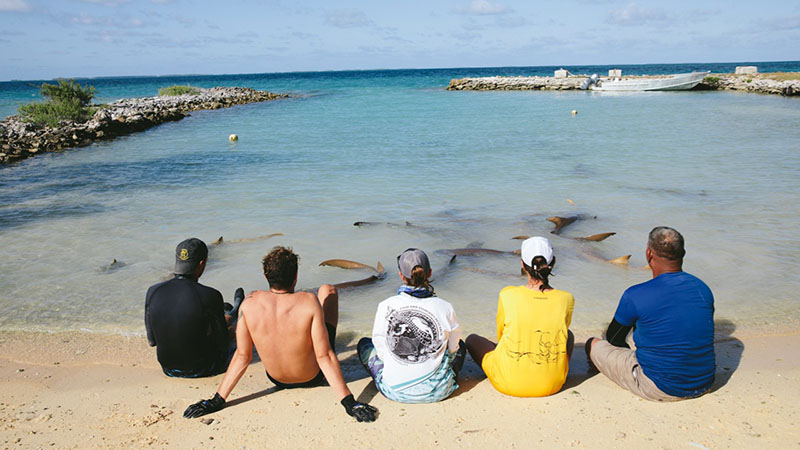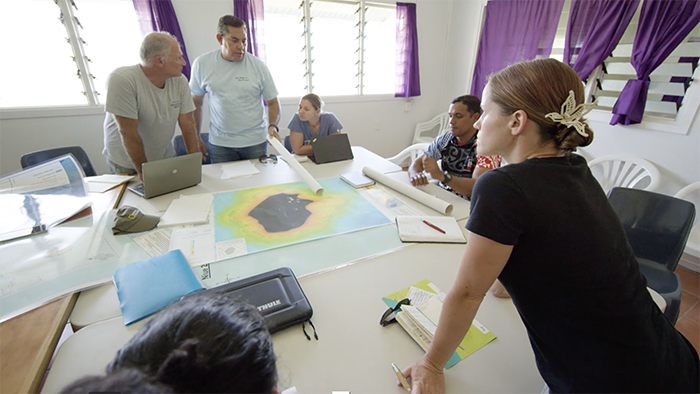
We are committed to responsible conservation and that means working with stakeholders to design shark and marine conservation and management policies that effectively protect sharks and rays and consider the perspectives of people. We aren’t afraid to use our science, our communities and our political savvy to get it done.
We love science, but science alone doesn’t make lasting change for the planet that we all know and love. Getting people onboard to pass new laws does. But it doesn’t necessarily matter whether the “laws” are written or traditionally managed; it matters whether they’re appropriate, achievable, enforceable, measurable and planned accordingly.

Our policy work occurs at three main levels, community, national and international and our goals in each are the same: to ensure adequate, effective protection for sharks and rays through a process that is underpinned by science, culture and supported by the local community, while implemented through a well-informed and willing governing body. These policy measures span recreational and industrial fisheries, trade and ecotourism.
At the community level, our current policy work is centered on understanding and addressing artisanal interactions with sharks and the subsequent human-wildlife conflict that arises. We are working to educate the public about sharks and we partner with local stakeholders to create effective mitigation strategies, upon which local or national regulations may be drafted that allow fishers to thrive without overfishing shark populations.
At the national level, we are working with governments to design and implement much-needed protection for sharks and their relatives, but we know that can’t be done without looking at the fisheries that affect sharks.
 We’re also working with local stakeholders to implement current protection measures—and to revise them when necessary. This helps to ensure adequate, legislated protection for sharks caught by commercial fishing vessels and includes helping vessels to adopt best practice handling guidelines, gear modifications and changes to fishing procedures on vessels. We know industrial fisheries are less inclined for change if the proposed changes are a huge economic burden, so we’re also working to provide data and ideas that are economically viable and therefore more likely to have a lasting impact. Additionally, we encourage more thorough data collection on all bycatch species.
We’re also working with local stakeholders to implement current protection measures—and to revise them when necessary. This helps to ensure adequate, legislated protection for sharks caught by commercial fishing vessels and includes helping vessels to adopt best practice handling guidelines, gear modifications and changes to fishing procedures on vessels. We know industrial fisheries are less inclined for change if the proposed changes are a huge economic burden, so we’re also working to provide data and ideas that are economically viable and therefore more likely to have a lasting impact. Additionally, we encourage more thorough data collection on all bycatch species.
International and regional protections exist for sharks and rays through multilateral fisheries and trade agreements such as Convention on International Trade in Endangered Species of Wild Fauna and Flora (CITES) and regional tuna management bodies. These protections are often incomplete, lacking species or areas requiring protection. While they’re usually heavily advocated for in developed countries, implementation of these protections often place the financial burden on developing states without adequate resources and sometimes, they are not legally bound to do so. We are working to improve species listings and close loopholes on these policies and, more importantly, to improve implementation and uptake by national governments and other stakeholders in fisheries and trade.